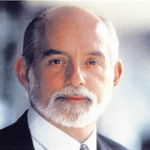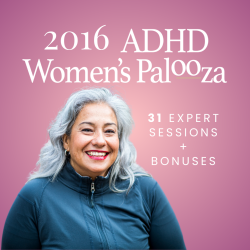Just the Facts: Collating the Research about ADHD Women (and Men) – 2016
Russell A. Barkley, Ph.D.
Is it true that there are more men than women with ADHD? What are the differences between boys/girls and men/women with ADHD? Do symptoms change as girls grow up? What are the challenges women with ADHD face? What does Executive Functioning have to do with ADHD? Have we made progress in identifying and treating ADHD over the last 20 years? Dr. Russell Barkley answers these questions and more.
$13.00
1. Is it true that there are more men than women with ADHD?
2. What are the differences between boys/girls and men/women with ADHD?
3. Do symptoms change as girls grow up? What are the challenges women with ADHD face?
4. What does Executive Functioning have to do with ADHD?
5. Have we made progress in identifying and treating ADHD over the last 20 years?
Dr. Russell Barkley answers these questions and more.
About Russell Barkley, Ph.D.
 Russell A. Barkley, Ph.D., is a Clinical Professor of Psychiatry at the Medical University of South Carolina. He is a Diplomate (board certified) in three specialties, Clinical Psychology (ABPP), Clinical Child and Adolescent Psychology, and Clinical Neuropsychology (ABCN, ABPP). Dr. Barkley is a clinical scientist, educator, and practitioner who has published 23 books, rating scales, and clinical manuals numbering 41 editions. He has also published more than 270 scientific articles and book chapters related to the nature, assessment, and treatment of ADHD and related disorders. He is the founder and Editor of the bimonthly clinical newsletter, The ADHD Report, now in its 20th year of publication.
Russell A. Barkley, Ph.D., is a Clinical Professor of Psychiatry at the Medical University of South Carolina. He is a Diplomate (board certified) in three specialties, Clinical Psychology (ABPP), Clinical Child and Adolescent Psychology, and Clinical Neuropsychology (ABCN, ABPP). Dr. Barkley is a clinical scientist, educator, and practitioner who has published 23 books, rating scales, and clinical manuals numbering 41 editions. He has also published more than 270 scientific articles and book chapters related to the nature, assessment, and treatment of ADHD and related disorders. He is the founder and Editor of the bimonthly clinical newsletter, The ADHD Report, now in its 20th year of publication.
Dr. Barkley has presented more than 800 invited addresses internationally and appeared on nationally televised programs such as 60 Minutes, the Today Show, Good Morning America, CBS Sunday Morning, CNN, and many other programs on behalf of those with ADHD. He has received awards from the American Psychological Association, American Academy of Pediatrics, American Board of Professional Psychology, Association for the Advancement of Applied and Preventive Psychology, American Professional Society for ADHD and Related Disorders, New England Educational Institute, the Wisconsin Psychological Association, and Children and Adults with ADHD (CHADD) for his career accomplishments, contributions to research in ADHD, to clinical practice, and for the dissemination of science.
Related products
-
Sale!

GREAT VALUE: 2016 ADHD Women’s Palooza Encore Package
$197.00Original price was: $197.00.$127.00Current price is: $127.00. Add to cart -

Great Sex Matters in ADHD Relationships – 2016
$13.00 Add to cart -

ADHD Women and the Law: What You Need to Know – 2016
$13.00 Add to cart -

Alternative and Non-Medication ADHD Treatments – 2016
$13.00 Add to cart -

ADHD Unplugged: Two Tales of Woe and Triumph – 2016
$13.00 Add to cart
